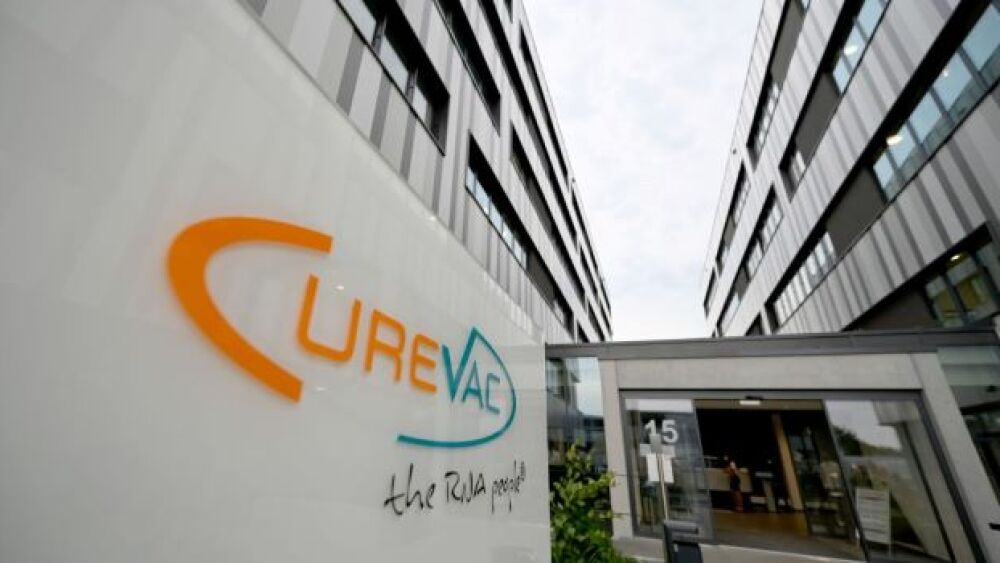Teamed up with pharma giant GlaxoSmithKline, CureVac is now focusing on a more promising target – second-generation mRNA vaccines.
Bernd Weissbrod/picture alliance via Getty Images
CureVac knows when to hold ‘em and knows when to fold ‘em. And after their COVID-19 vaccine candidate, CVnCoV, showed a dismal efficacy of 48% in late-stage trials, the German biotech is tossing down its hand for a chance in the next round.
While CureVac’s vaccine showed promise in preclinical studies, the Phase 2b/3 study results just won’t cut it against the already-approved mRNA vaccines on the market. According to Franz-Werner Haaz, CureVac’s CEO, CVnCoV wouldn’t even earn EMA approval until summer or even fall of 2022. With these factors at hand, the company withdrew its application with the regulatory agency.
But the biotech isn’t walking away from the table. Teamed up with pharma giant GlaxoSmithKline, CureVac is now focusing on a more promising target – second-generation mRNA vaccines.
The first-generation mRNA vaccines from Pfizer-BioNTech and Moderna have changed the landscape of vaccines forever. Although these perform with greater efficacy than most would’ve dreamed, the variants are spreading fast and hitting hard. Second-generation mRNA vaccines are the next step.
CureVac and GSK are doubling down on their previous mRNA collaboration, adding more resources to accelerate the development of a second-gen mRNA vaccine program. The program is currently broad, not targeting just one disease but focusing on developing and manufacturing the next-level technology. However, preclinical results for a second-generation candidate, CV2CoV, have shown strong potential with up to 10x higher immunogenicity in animal models.
“The global fight against COVID-19 continues, and we remain committed to making a difference with a safe and efficacious vaccine. This goal has not changed, but the requirements to effectively address the virus and emerging variants have changed. In the ongoing transition from acute pandemic to endemic, our decision to withdraw CVnCoV from the regulatory approval process and focus our efforts on second-generation mRNA vaccine candidates reflects expected changes in public health needs that our second generation can potentially address,” said Haas.
CureVac hopes its new, more efficacious candidate will be ready by next fall. Having been behind the competition in the initial race for a COVD-19 vaccine, the biotech wants its second generation to be at the forefront.
Together with GSK, they hope to develop a shot that can protect from multiple variants of coronavirus, as well as a vaccine that targets coronavirus and influenza with just one stick. At the trial time, the candidate will be able to compare with an approved vaccine instead of a placebo.
Dropping CVnCoV means the purchase agreement with the European Commission for 405 million doses of its vaccine is now terminated.
The COVID-19 vaccine space is a tough one to succeed in. French pharmaceutical Sanofi abandoned its promising mRNA COVID-19 vaccine last month. Citing competition and time to approval, Sanofi is pivoting to mRNA vaccines for other infectious diseases. It will continue its program with GSK on a recombinant protein COVID-19 vaccine.
In the announcement of the strong preclinical results for CV2CoV, GSK Head of Vaccines R&D Rino Rappuoli said, “The mRNA technology is a key strategic priority for us, and we are investing significantly in a number of mRNA programs focused on the collaboration with CureVac.”






